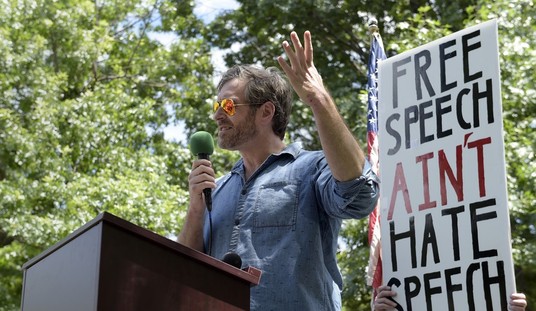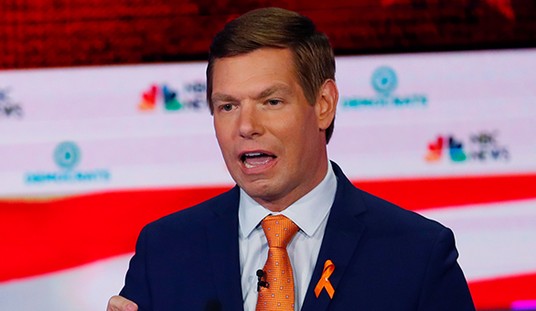WASHINGTON – The budget impasse in Congress, a looming government shutdown, and reaching the nation’s debit ceiling could all send the tepid U.S. economic recovery into a tailspin, a group of economists warned a Senate panel Tuesday.
If Congress does not pass a budget by Sept. 30, the end of the federal fiscal year, the federal government will partially shut down on Oct. 1.
Even as a government shutdown is on the horizon, lawmakers spent much of a Senate Budget Committee hearing pointing fingers and blaming each other.
At the hearing, Sen. Patty Murray (D-Wash.) accused Tea Party Republicans of holding the nation’s economy hostage in their zeal to “force their ideological agenda” through Congress.
“Some of the Tea Party Republicans have chosen gridlock over compromise, brinkmanship over solving problems, and partisan games over economic recovery,” Murray said. “Here we are today, days away from a possible government shutdown…all because some Tea Party Republicans have decided, once again, to try to defund the Affordable Care Act.”
Sen. Jeff Sessions (R-Ala.) shot back that the country has survived government shutdowns in the past, noting the numerous shutdowns during the Reagan administration, when the Alabama senator served as U.S. attorney general of Alabama.
The last time Congress and the White House shut the government down because they failed to reach a budget was for three weeks, from December 1995 to January 1996.
“Resolving this jobs crisis for working families will take more than just passing a so-called continuing resolution, or a new process for adjusting the debt ceiling; just borrow more, as some have suggested. We need a comprehensive review of our economic policies, and I might add, even our welfare policies,” Sessions said.
Sessions was critical of the government’s economic policies and the Federal Reserve’s quantitative easing policy for weakening the economic recovery.
“Tax more, borrow more, spend more, regulate more, more healthcare from the federal government side is not improving our situation,” he said.
A panel of economists told the committee that even the possibility of a shutdown could have a negative effect on the economy.
If the government shut down for a few days, the economy would suffer only minor damage. But if the shutdown lasts a month, growth could come to a standstill in the last months of the year, Mark Zandi, chief economist at Moody’s Analytics, testified Tuesday. For example, businesses would not be able to get Small Business Administration loans, homebuyers would not be able to get Federal Housing Administration loans, and student would not be able to get federal student loans.
As the panelists testified, Sen. Ted Cruz (R-Tex.) was on the Senate floor beginning his 21-hour speech in an effort to defund Obamacare. Cruz was demanding to remove funding for Obamacare as a condition for passing legislation to fund the government beyond Sept. 30. Under the current schedule, the Senate would not take its final vote on a temporary funding bill until Sunday, and the House would not receive it until Monday. That means there would not be enough time left to work out the difference in the two chambers’ bills, if the House changes the revised Senate bill on Monday. Both chambers must reach agreement on funding by Monday night to prevent most government agencies from closing on Tuesday.
“Political uncertainty is generated by the brinkmanship here in Washington over the budget, over the debt ceiling, over policy and regulation. All those things combined have weighed heavily on economic activity,” Zandi said.
Zandi said that political uncertainty is a strain on the national economy, keeping monthly hiring rates 20 percent lower than they should be in a healthy economy.
“The political uncertainty is key to the lack of hiring and the unwillingness for businesses to take a risk,” he said.
Zandi said political uncertainty rose after the stimulus act in 2009, shaving about $150 billion from GDP, which translates into more than one million jobs lost.
He also urged Congress to raise the debt ceiling before mid-October.
“If [the government shutdown] goes on for six or eight weeks, that means the debt limit is in play. We’ll probably breach it. In my view, breaching the debt limit would be cataclysmic,” Zandi said. “It would mean higher mortgage rates, higher borrowing costs for businesses, lower stock prices, lower house prices, a full-blown recession and there would be no reasonable policy response to it.”
Treasury Secretary Jack Lew told Congress on Wednesday the country is likely to reach its borrowing limit on Oct. 17, putting the government in a position of being unable to meet its financial obligations.
Chad Stone, chief economist at the Center on Budget and Policy Priorities, said the economy has generated plenty of uncertainty on its own in recent years, and “policy squabbles” over long-term deficit reduction and over the appropriate mix between spending cuts and tax increases have made the situation worse.
Allan Meltzer, an economics professor at Carnegie Mellon University, told the committee that investments are critical to a strong economy, but budget uncertainty keeps people from investing. A long-term budget plan would help stabilize the economy, he said.
Meltzer said a short-term government shutdown would not be detrimental to the economy. Instead, he said, the unsustainable budget deficits were of greater concern for economic growth.
“There are two overriding problems. One is unsustainable budget deficits, especially underfunded entitlements. Second are the demands for higher tax rates and decisions to increase regulation, raise current expected future costs, and heighten uncertainty,” he said. “Uncertainty is the enemy of investment and that is the main reason, in my opinion, why the long-term growth rate is down.”









Join the conversation as a VIP Member